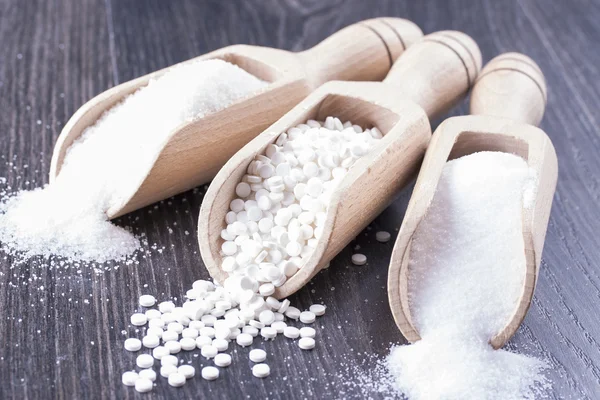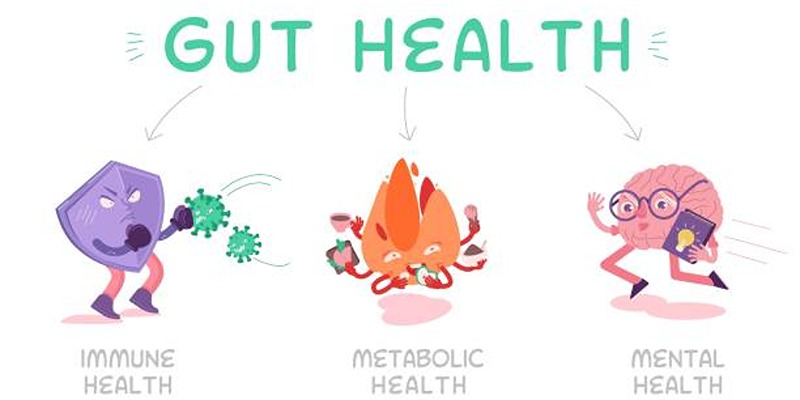Before non-sugar sweeteners were a thing, people had a tough choice. They could enjoy the sweet taste they loved or deal with the health issues that came with too much sugar. Sugar was in everything. But it often led to problems like cavities, weight gain, and blood sugar spikes. People wanted something better. So, scientists and food makers tried to find a way to keep the sweetness without the downsides. That’s how non-sugar sweeteners came to life, both natural and artificial. So, in this article, we will discuss about what are the health effects of non-sugar sweeteners and how we can use them wisely.
Types of non-sugar sweeteners
When it comes to non-sugar sweeteners, there are two main kinds you’ll hear about: natural sweeteners and artificial sweeteners. Let’s break them down in a simple way.
Natural sweeteners
These sweeteners are derived from natural sources, such as plants or animals. They go through less processing, and some even offer small health benefits. But keep in mind that they still have calories and can affect your blood sugar if you use too much. Here are a few common ones:
- Honey: Made by bees. It contains antioxidants and a small amount of vitamins.
- Maple syrup: Taken from the sap of maple trees. It contains small amounts of minerals, such as manganese and zinc.
- Stevia: A plant-based sweetener with zero calories. It doesn’t raise blood sugar, which makes it a good choice for people with diabetes.
Artificial sweeteners
These are made in labs to give you a sweet taste without the calories. They're often much sweeter than regular sugar, so you only need a tiny bit. Artificial sweeteners don’t raise your blood sugar and don’t add calories, which is why they’re often used in "diet" foods and drinks. Some popular ones include:
- Aspartame (found in NutraSweet®, Equal®)
- Sucralose (found in Splenda®)
- Saccharin (found in Sweet’N Low®)
- Acesulfame potassium

How do non-sugar sweeteners work?
Non-sugar sweeteners taste sweet because they work with the same taste buds on your tongue that respond to sugar. These special taste buds send a message to your brain that says, "This is sweet!" But here's the difference: unlike sugar, most of these sweeteners don't give your body energy or calories. That's because many of them either pass through your system without being absorbed. Or they're not fully broken down like sugar is.
For example, artificial sweeteners such as sucralose or saccharin go through your body without being digested. This means they don’t raise your blood sugar and don’t add any calories. That’s why they’re often used in sugar-free drinks or foods made for people watching their weight or managing diabetes.
Some sweeteners, such as aspartame, are partially broken down in the body. But since they're so much sweeter than sugar, you only need a tiny amount. That means they still add almost no calories. One more thing: regular sugar causes your body to release hormones, such as insulin. It helps control blood sugar and tells you when you're full. Most non-sugar sweeteners don't trigger the same hormone response. So, while they taste sweet, they don't always make your body feel full in the same way.

Health effects of non-sugar sweeteners
People often use non-sugar sweeteners to cut back on sugar and calories, but what do they really do to our health? Research has found both good and bad effects of them on our body. Let’s find them out.
Some studies suggest that using non-sugar sweeteners may help individuals lose a small amount of weight. Especially when they're also eating fewer calories overall, this makes sense: less sugar often means fewer calories. But here’s the catch: those benefits may not last in the long run.
For people with diabetes, non-sugar sweeteners can be helpful. They don't raise blood sugar levels as regular sugar does. That's why many sugar-free products are made with these sweeteners. However, not all studies agree. Some long-term studies have found that people who often use these sweeteners may have a higher risk of type 2 diabetes.
Some research has linked non-sugar sweeteners to problems like heart disease, stroke, or even a shorter lifespan. But these studies only show a connection; they don’t prove that sweeteners are the cause. There is also some early evidence that sweeteners may affect gut health or how our bodies regulate hunger, but further research is needed to better understand this relationship.
Are non-sugar sweeteners safe?
In general, yes. Non-sugar sweeteners that have been approved by health authorities like the U.S. FDA and the World Health Organization are considered safe when used in moderation. The FDA has approved six non-sugar sweeteners: saccharin, aspartame, sucralose, neotame, acesulfame potassium (Ace-K), and advantame. A lot of testing has been done on these, and they are generally recognized as safe. It means they’re safe to eat within recommended limits.
Take aspartame, for example. It's one of the most extensively researched sweeteners available. Recently, a health agency (IARC) labeled it as "possibly cancer-causing," but the FDA disagreed. After reviewing the evidence, the FDA found the studies weren't strong enough to prove any real risk and still considers aspartame safe when used appropriately.
How to use non-sugar sweeteners wisely
Non-sugar sweeteners can be helpful, but you need to use them wisely.
- Keep it in moderation: Just because something is sugar-free doesn't mean you should have it all the time. Health experts, such as the FDA and EFSA, set safe daily limits; therefore, use them accordingly.
- Don’t count on them for weight loss: Using sweeteners instead of sugar might help you cut calories short term, but the World Health Organization says they’re not a long-term solution for losing weight or preventing disease.
- Think twice for kids: Kids, especially young ones, shouldn't have too many sweetened foods. Older kids can use them occasionally to help reduce their sugar intake. However, the goal should be to reduce all sweeteners over time.
- Special cases need extra care: If you're pregnant, breastfeeding, or have certain health issues, it’s a good idea to check with your doctor before using them regularly.
Final thoughts
You cannot avoid non-sugar sweeteners. They are present in almost everything, like diet sodas, protein bars, and even salad dressings. They offer a way to reduce sugar and calories. It can be helpful to manage weight or blood sugar. But relying on them completely is not good at all. Because we are still researching about the long-term effects of these sweeteners. In the end, it is important to remember that everyone's body reacts differently. What works for one person might not work for someone else.












